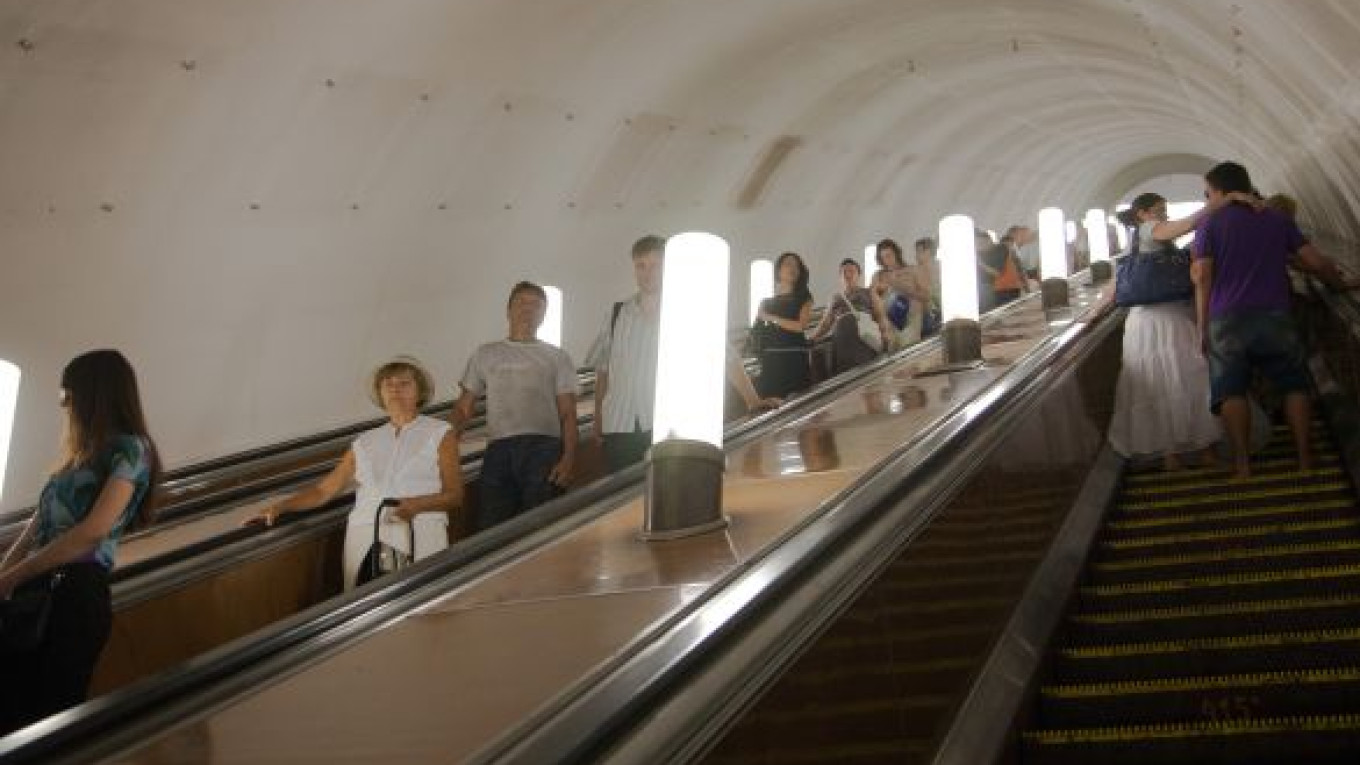A metro spokesperson confirmed to Interfax that escalator services head Alexander Ikenkin had been removed from his position, but a source in the metro denied that he was fired from the metro completely and said he had only been demoted to a lower position.
"Ikenkin was not dismissed from the metro, as reported by some media," the source told Interax. "He was appointed deputy head of the escalator services for reconstruction."
The source declined to name a reason for the shakeup, which occurred weeks after a woman broke her spine and? nine other people were injured when an? escalator heading into? metro station Komsomolskaya stopped sharply. An official report about the causes of the accident is due within several days.
The metro's escalators have been plagued by slow construction and delays, which experts say is partly due to a monopoly on escalator production. Currently, a single company, St. Petersburg-based Eles, produces escalators for the metro system.
The company, which has produced escalators for the city since 1978, works at maximum capacity and frequently fails to meet deadlines. This has caused delays in reconstruction, such as in the case of the Park Kultury circle line station, which opened late last month about 5 months after the originally planned reopening date.
RBC News reported last month that city authorities have contracted another company, Transmashholding, to produce additional escalators that could be ready by the second half of this year.
Transmashholding is co-owned by the new head of the Moscow transportation department, Maxim Liksutov, though City Hall has denied that there is a link between Liksutov's appointment and the city contracts, saying that the company had been a long-time partner of the city.
Last week, city officials announced a huge expansion of the metro system to add 70 stations and 150 kilometers of new track by 2020.
A Message from The Moscow Times:
Dear readers,
We are facing unprecedented challenges. Russia's Prosecutor General's Office has designated The Moscow Times as an "undesirable" organization, criminalizing our work and putting our staff at risk of prosecution. This follows our earlier unjust labeling as a "foreign agent."
These actions are direct attempts to silence independent journalism in Russia. The authorities claim our work "discredits the decisions of the Russian leadership." We see things differently: we strive to provide accurate, unbiased reporting on Russia.
We, the journalists of The Moscow Times, refuse to be silenced. But to continue our work, we need your help.
Your support, no matter how small, makes a world of difference. If you can, please support us monthly starting from just $2. It's quick to set up, and every contribution makes a significant impact.
By supporting The Moscow Times, you're defending open, independent journalism in the face of repression. Thank you for standing with us.
Remind me later.


